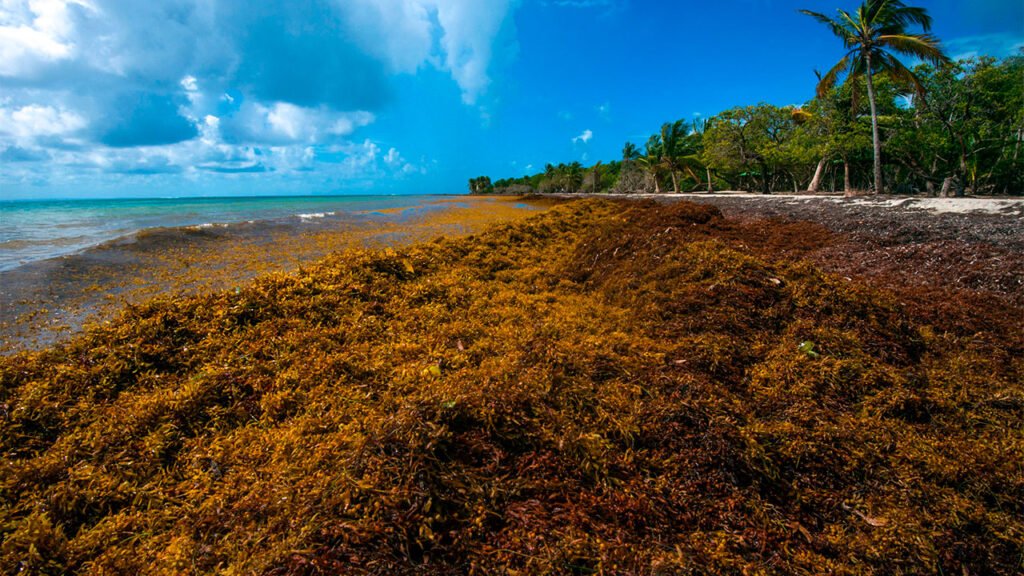Marcelo Santini, Director of Maritime Affairs
There will be many projects involving the beautiful coastal environment of Belize. The Sargassum project is the first we’ll tackle. Masses of Sargassum also have strangled the Caribbean’s fishing industry. It damages boat engines and fishing gear, prevents fishermen from reaching their boats and fishing areas and leads to a drop in the number of fish caught. It also has activists concerned about the plight of endangered turtles, with some dying at sea entangled in seaweed or unable to lay their eggs given the mat of algae covering the sand.

Sargassum in moderation helps purify water, absorb carbon dioxide and is a key habitat for fish, turtles, shrimp, crabs and other creatures. But it is bad for tourism, the economy and the environment when too much accumulates just offshore or on beaches.
Attempts to use sargassum as fertilizer, food, biofuel, construction material or medicinal products continue, but many Caribbean islands are unable to remove the vast amounts of the seaweed because they are struggling financially and have limited resources.
At least three pelagic species of Sargassum have been dominant in the blooms that have occurred along Caribbean coastlines in great quantities. Due to the regional scale of these events and its complexity, its management should be based on basic and applied information generated by different collaborative actors (national and international) through interdisciplinary and transdisciplinary work. To address this, we propose different phases (exploratory, valorization, and management) and the approach for their study should include detection, collection, stabilization and experimentation. This information will help identify the potential applications and/or ecological services to develop for the exploitation and mitigation strategies in the region.
The Maritime Affairs team will tackle these challenges and provide solutions along the coastline of Belize.
